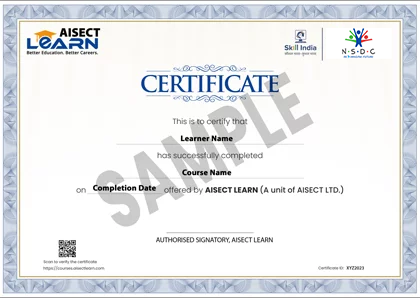Certificate Course in Mushroom Cultivation
Self -Paced
Fee: ₹1,999
 Dr. Suchi Modi | Associate professor
Dr. Suchi Modi | Associate professor
Mushroom cultivation is their ability to create a pollution-free and friendly environment. They demonstrate great potential for generating a great socio-economic impact on human welfare, at local, national, and regional levels. Applied mushroom biology is closely associated with three aspects of well-being – food shortage, human health, and environmental pollution. And their spent composts/substrates can be used as animal feed, biofertilizers, and biogas. Mushrooms can serve as agents for promoting equitable economic growth in society. They are a unique group of fungi through which we can pilot a non-green revolution in less developed countries, and in the world at large. A regular intake of mushrooms can make you healthier, fitter, and happier. Mushrooms are environmentally very friendly. They biosynthesize their own food from agricultural crop residues, which would otherwise cause health hazards. Mushrooms can serve as food, as a tonic, and as medicine.
Objectives
What Will You Learn
Skills you will gain
Curriculum
-
Paper 1 - Introduction to mushroom
-
Chapter 1 - Mycology
-
Chapter 2 - Morphology and Characteristics of Mushrooms
-
Chapter 3 - Common Edible Mushrooms
-
Chapter 4 - Disease and Pest Management in Cultivated Mushrooms
-
Chapter 5 - Growing Conditions for Mushrooms
-
-
Paper 2 - Commercial Cultivation of Mushroom
-
Chapter 1 - Principal of Mushroom Cultivation
-
Chapter 2 - Cultivation of Paddy Straw Mushroom and Oyster Mushroom
-
Chapter 3 - Cultivation of milky mushroom and Button Mushroom
-
-
Paper 3 - Business establishment and marketing strategies
-
Chapter 1 - Production and Harvesting of Mushrooms
-
Chapter 2 - Value addition of Mushroom
-
Chapter 3 - Entrepreneurship in Mushroom Cultivation
-
Instructor

Dr. Suchi Modi
Associate professorWorked as an Associate Professor in Rabindranath Tagore university.
Still have queries? Talk to our counselors who are available to guide you.
Shareable Certificate

Other Details
 Credentials
Credentials Associated Courses
 Instructor:
Instructor:
 Duration:
Duration:
 Course Credit:
Course Credit:
 Certification Body:
Certification Body:
 Language:
Language:
 Access:
Access:
 Shareable Certificate:
Shareable Certificate:
